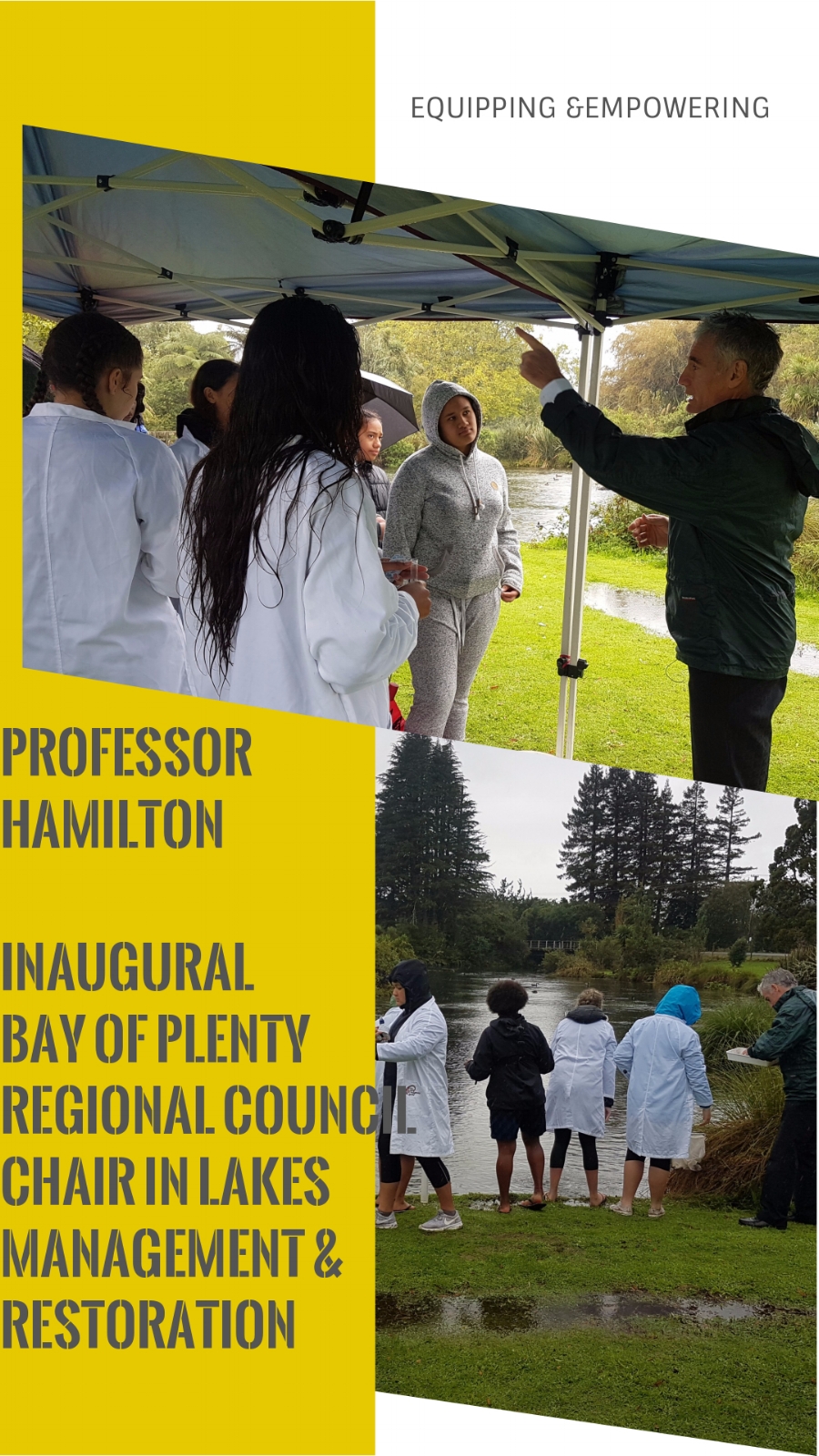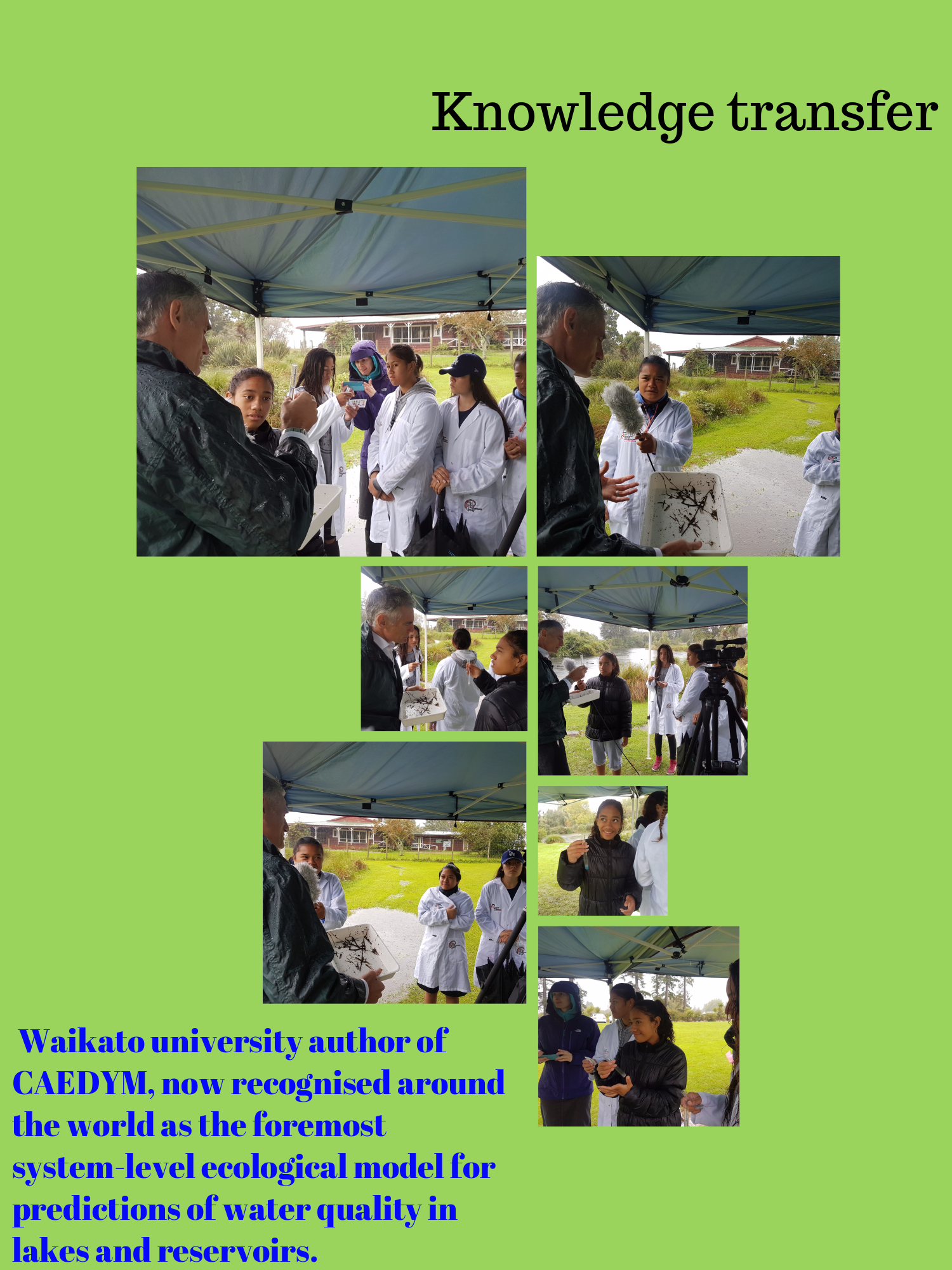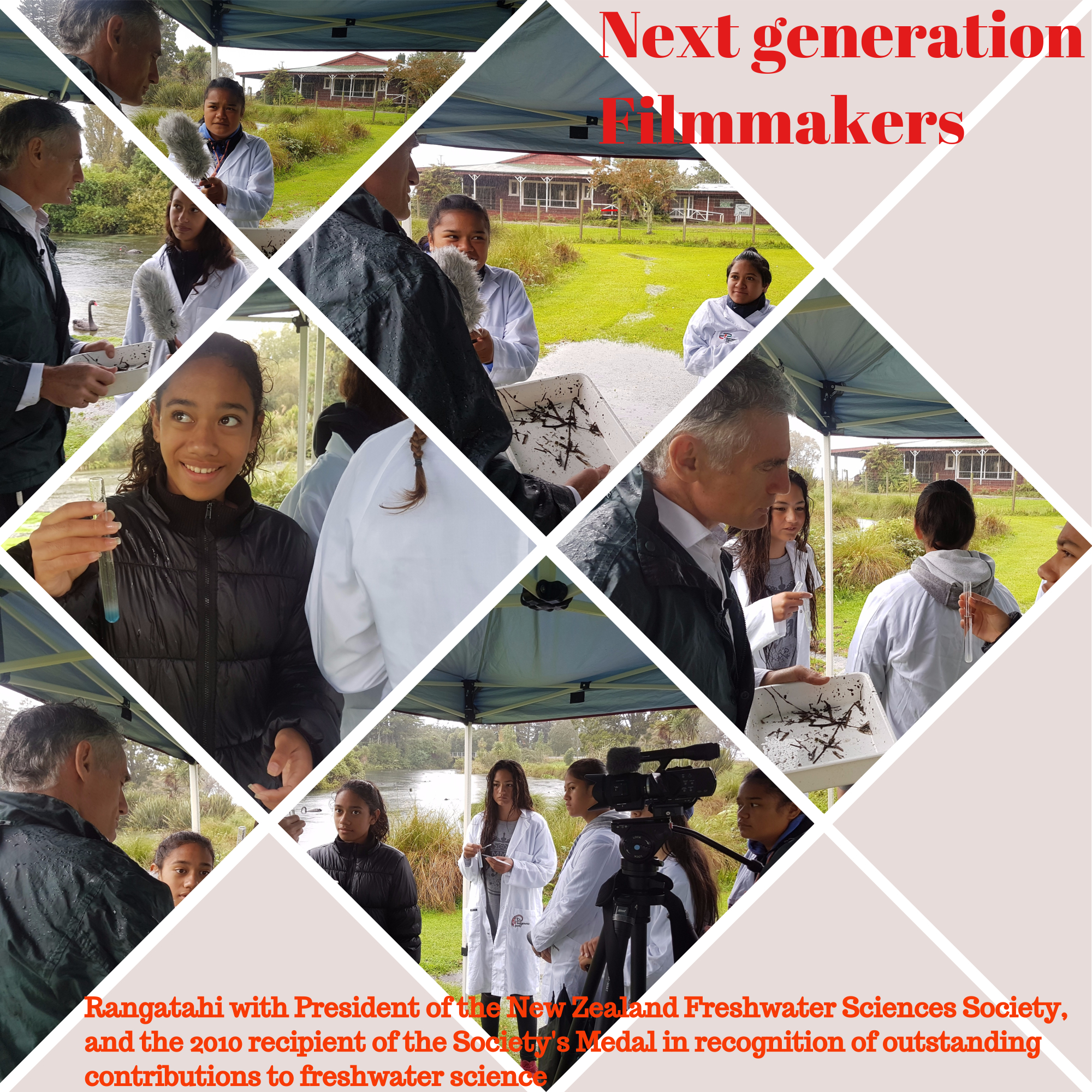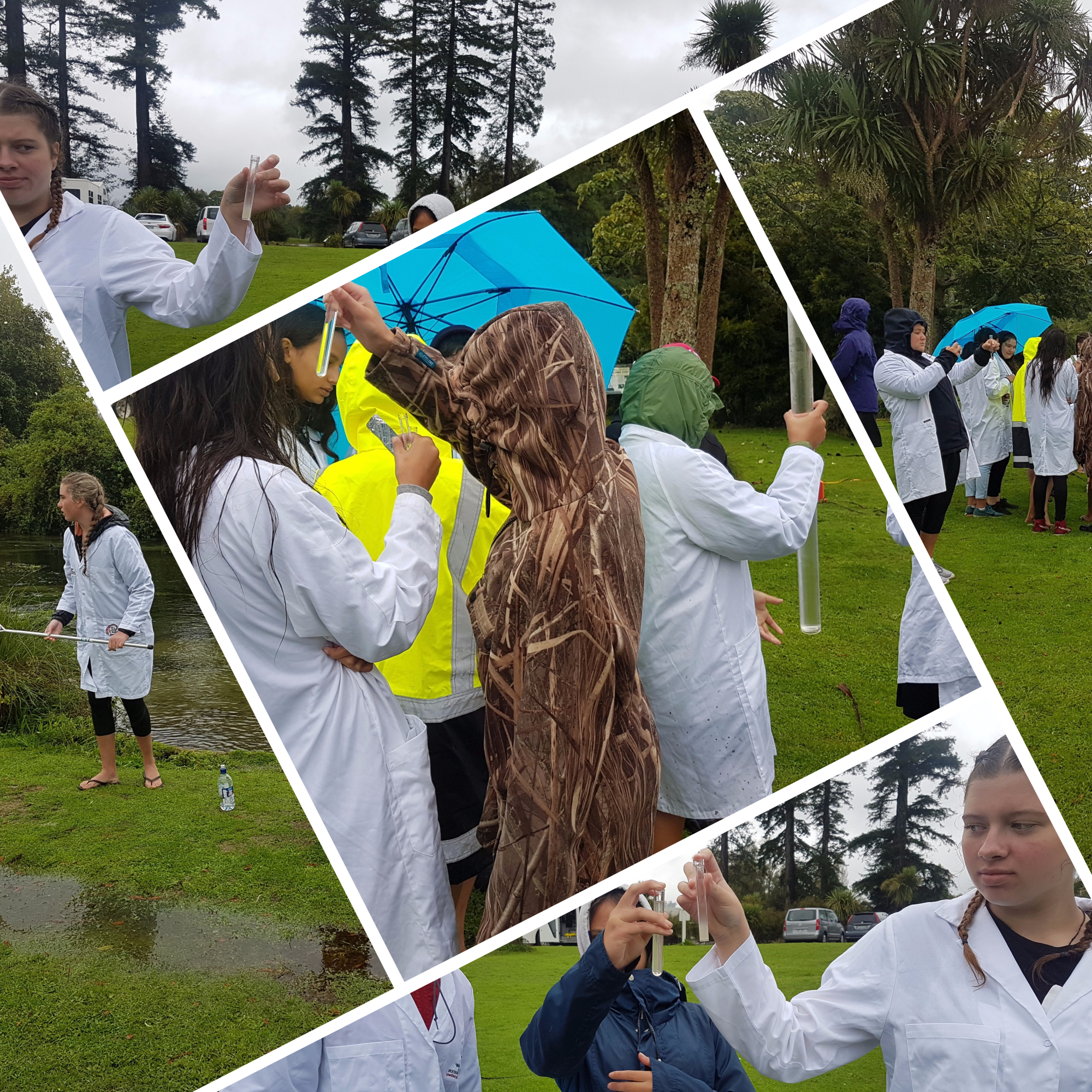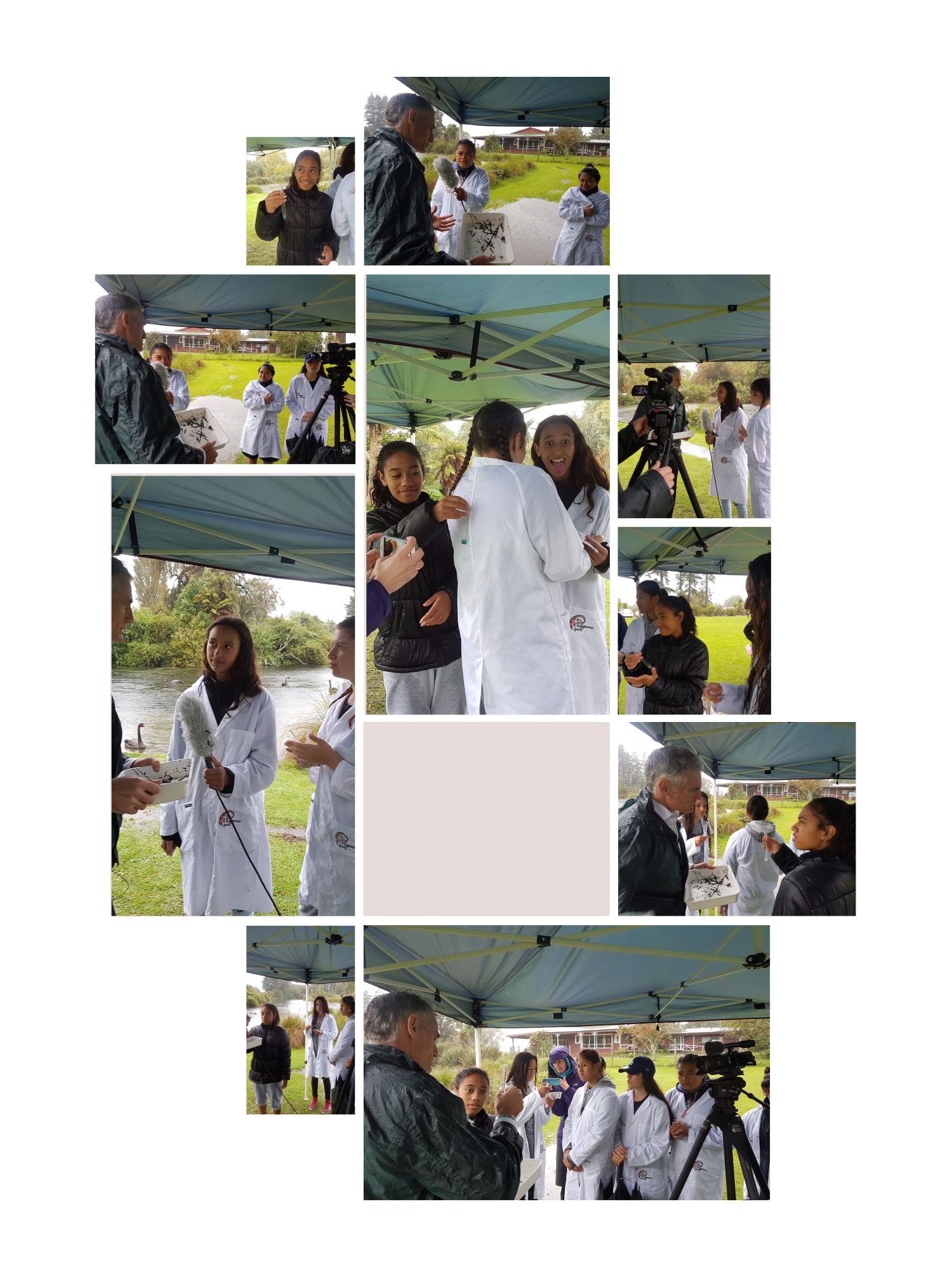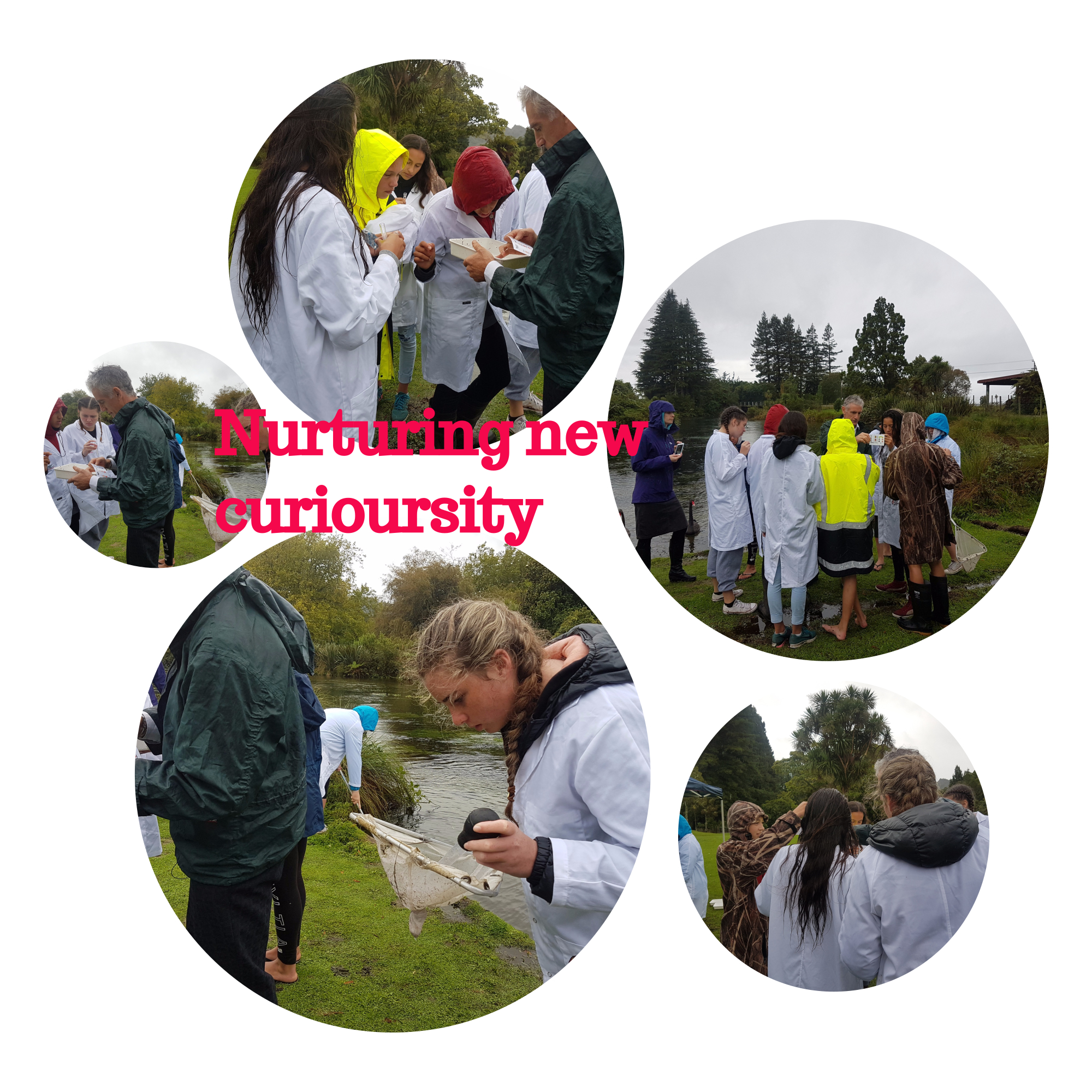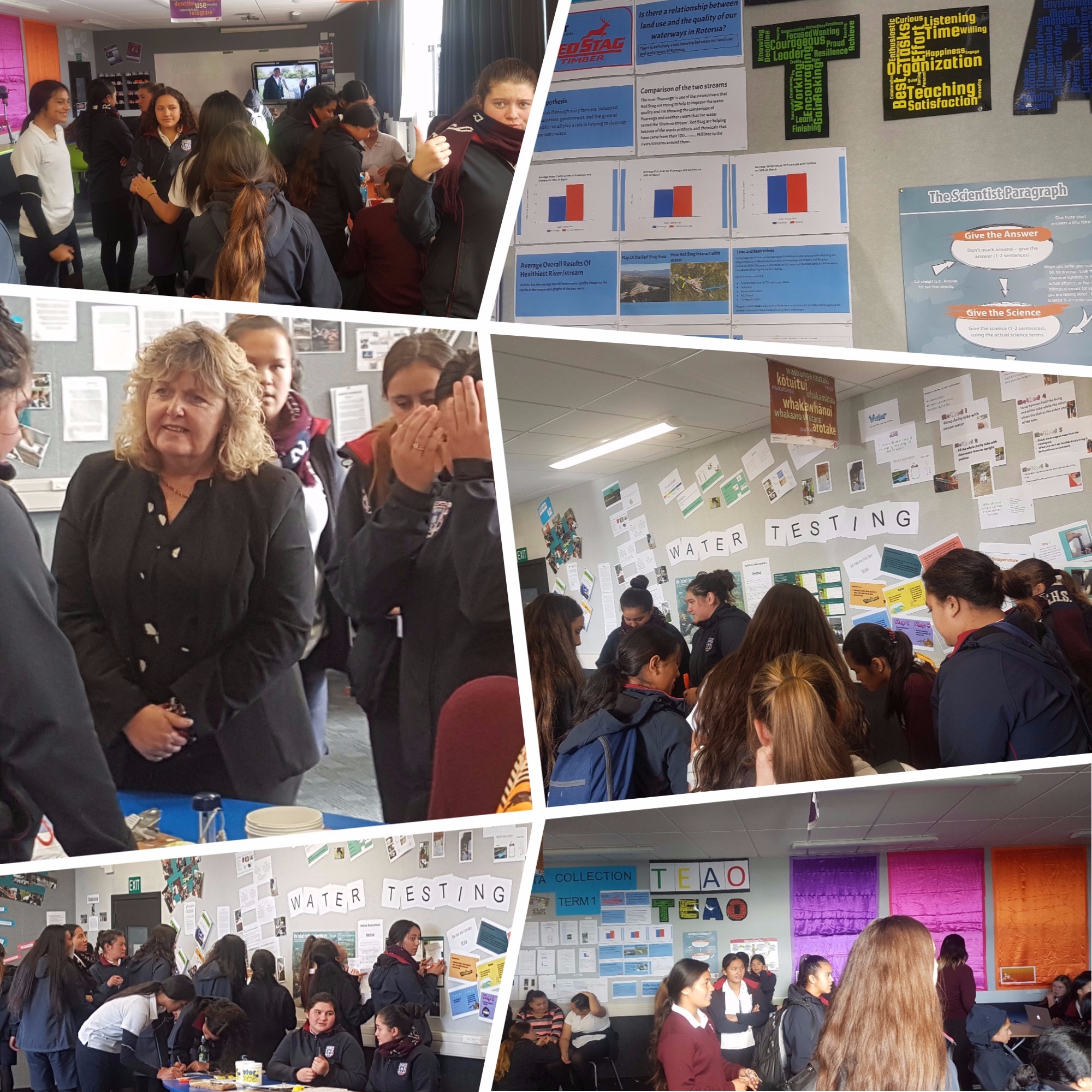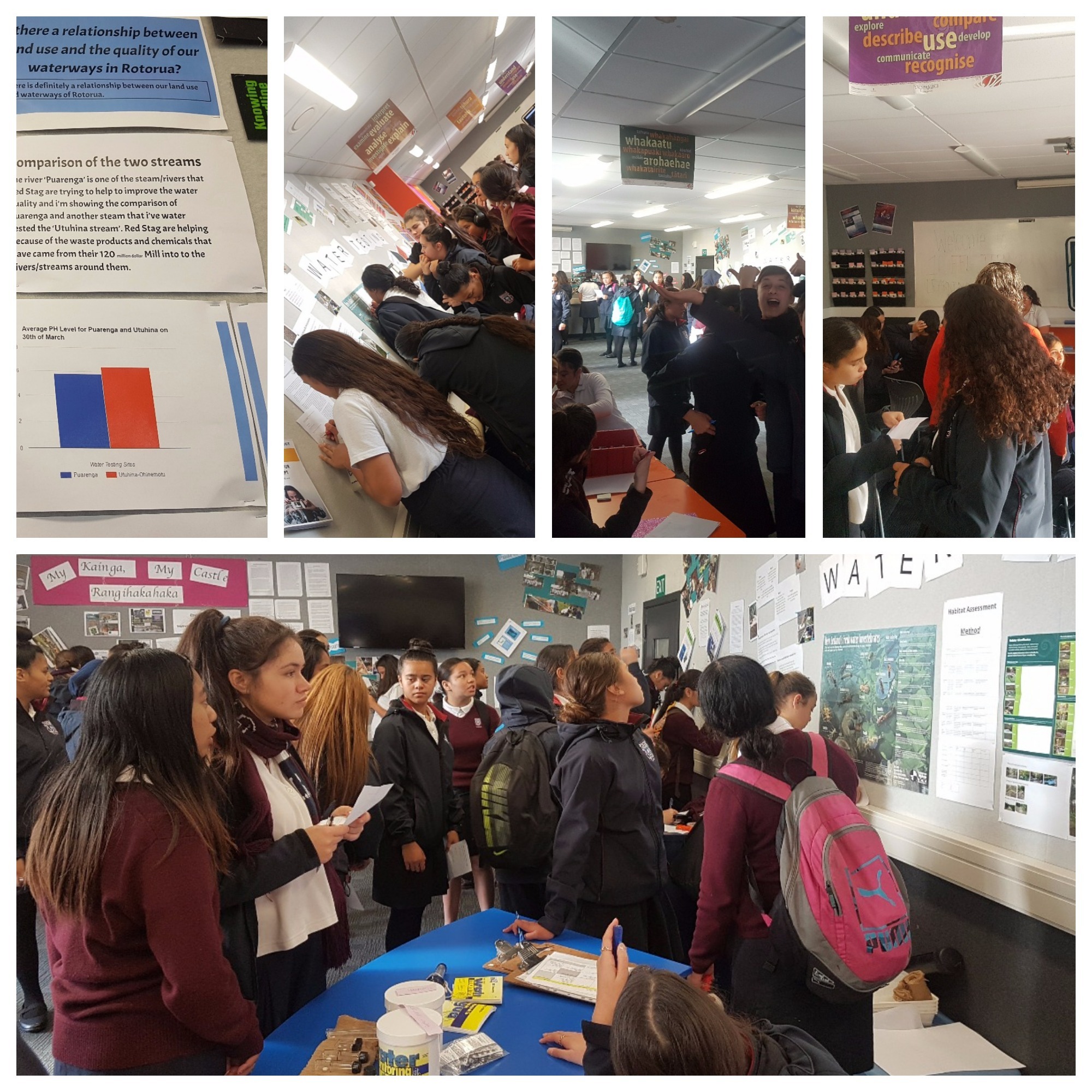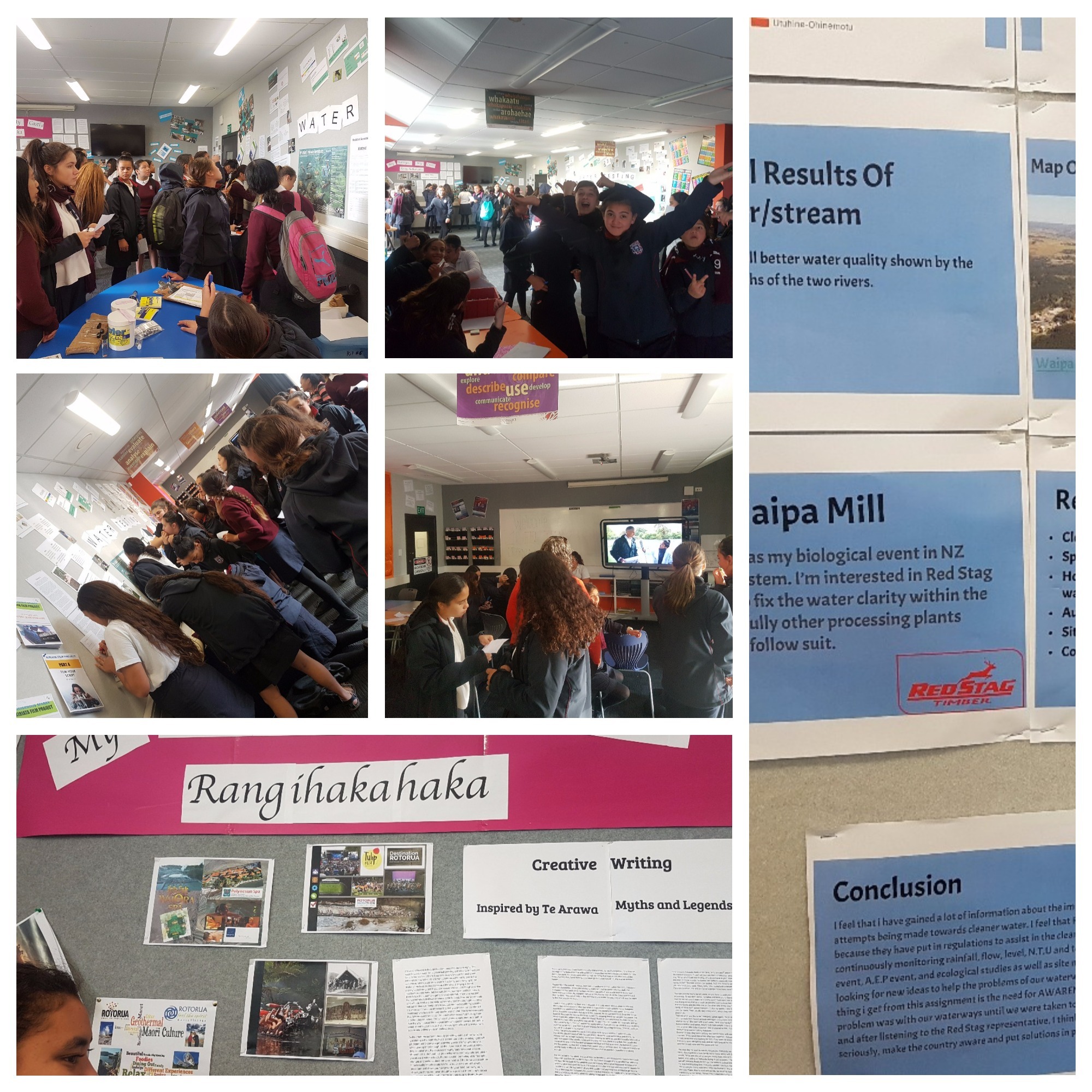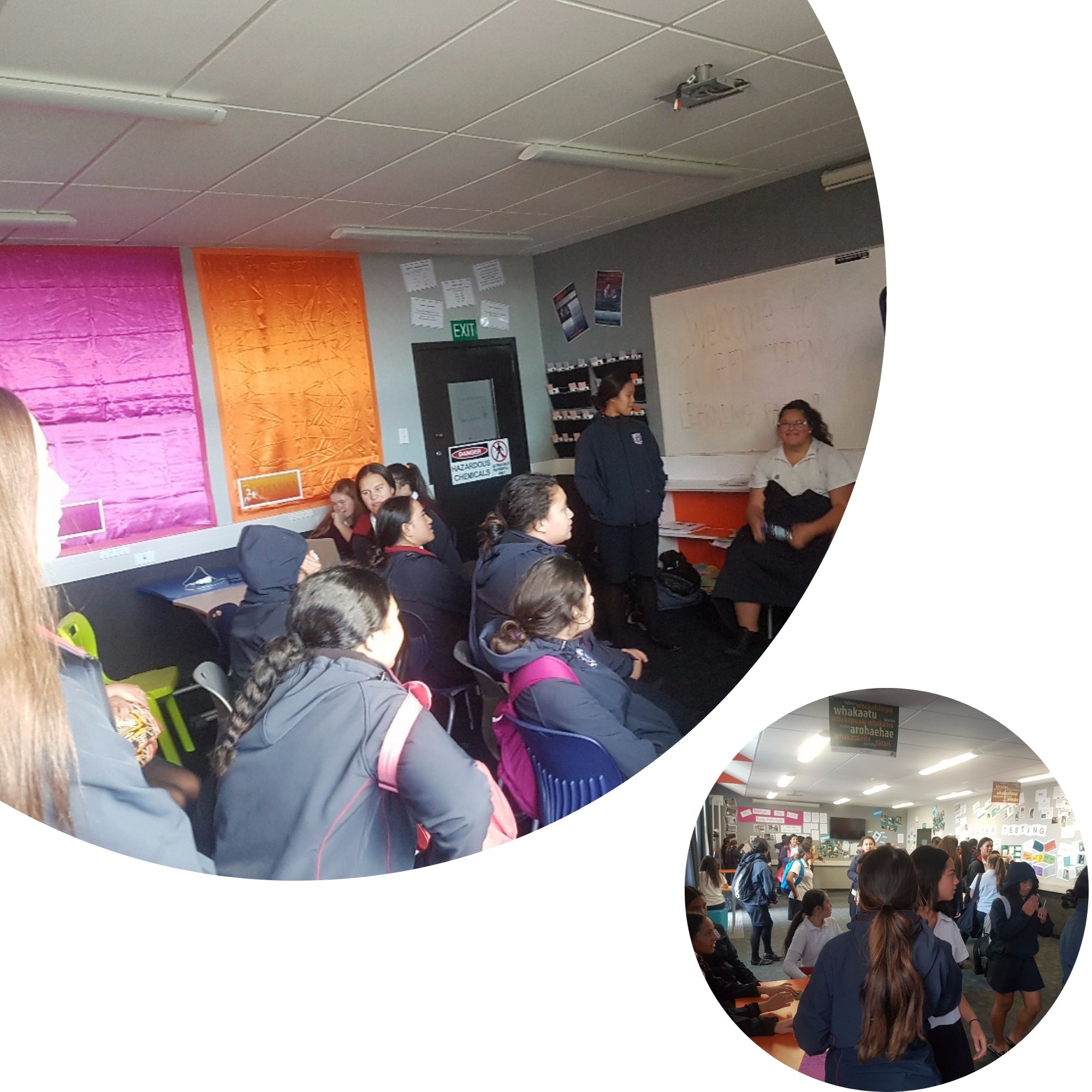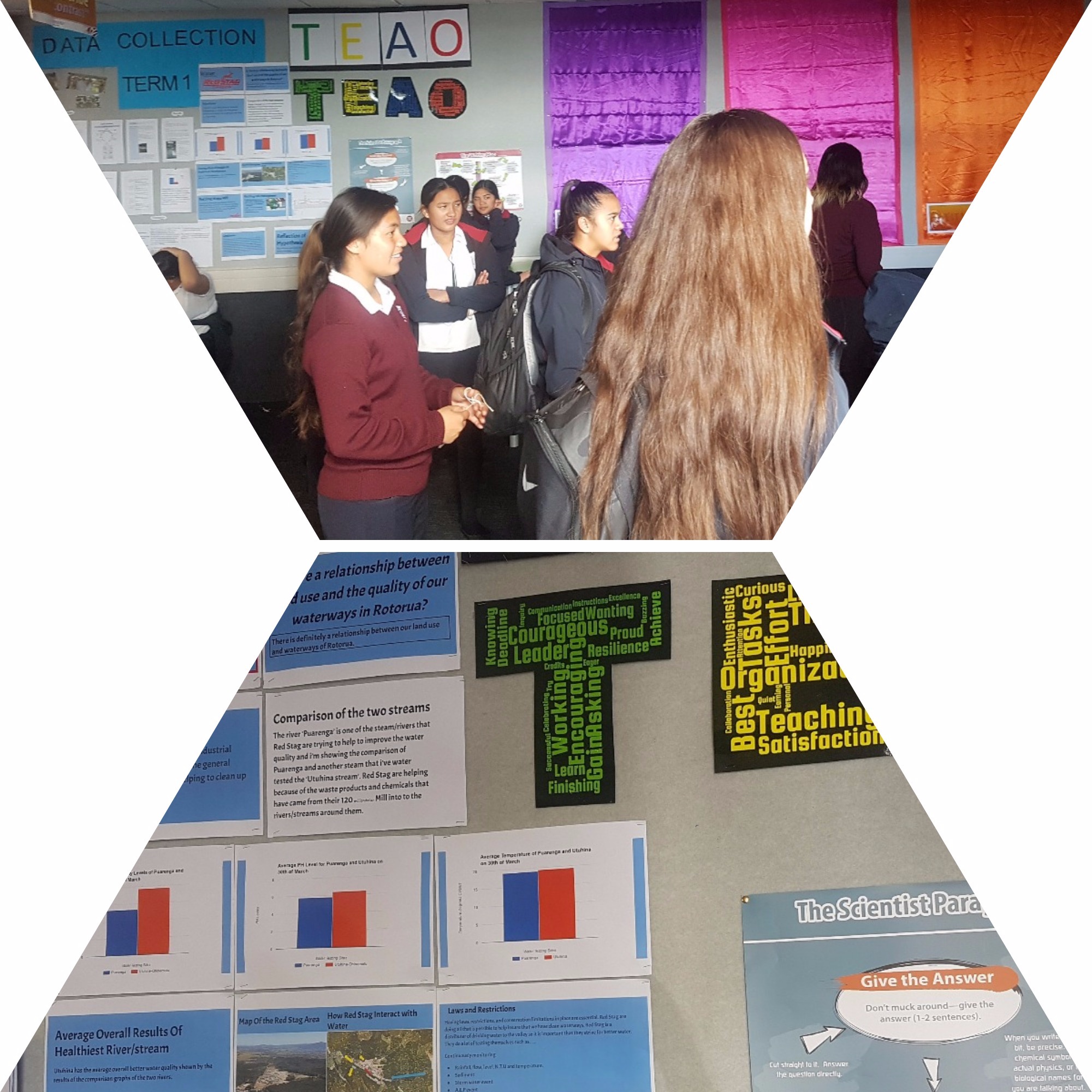Science Filmmaking Rotorua
Rotorua students gained hands-on understanding of the process of pre-production, scriptwriting and camerawork. This practical experience had students working with state-of-the-art equipment while receiving explicit instructions from professional in the film industry. Students were honoured with guest scientist Professor David Hamilton who provided them with significant insight and understanding into the Hamurana Stream which goes into Lake Rotorua. Professor Hamilton holds the inaugural Bay of Plenty Regional Council Chair in Lakes Management and Restoration, and leads the Water Quality Group for LERNZ (Lake Ecosystem Restoration New Zealand), a ten-year $10 million initiative to identify and remediate threats to lake ecosystems.
His research focuses on how algal blooms form, how nutrients are transformed and how models can be used for prediction and management of lake ecosystems. He was the original author of CAEDYM, now recognised around the world as the foremost system-level ecological model for predictions of water quality in lakes and reservoirs. Professor Hamilton is President of the New Zealand Freshwater Sciences Society, and the 2010 recipient of the Society's Medal in recognition of outstanding contributions to freshwater science.
The knowledge provided to our Rotorua students was amazing. They were able to work closely with Professor Hamilton during the morning as they directed a series of films that they produced, learnt key editing skills and published their film ready for live audiences.
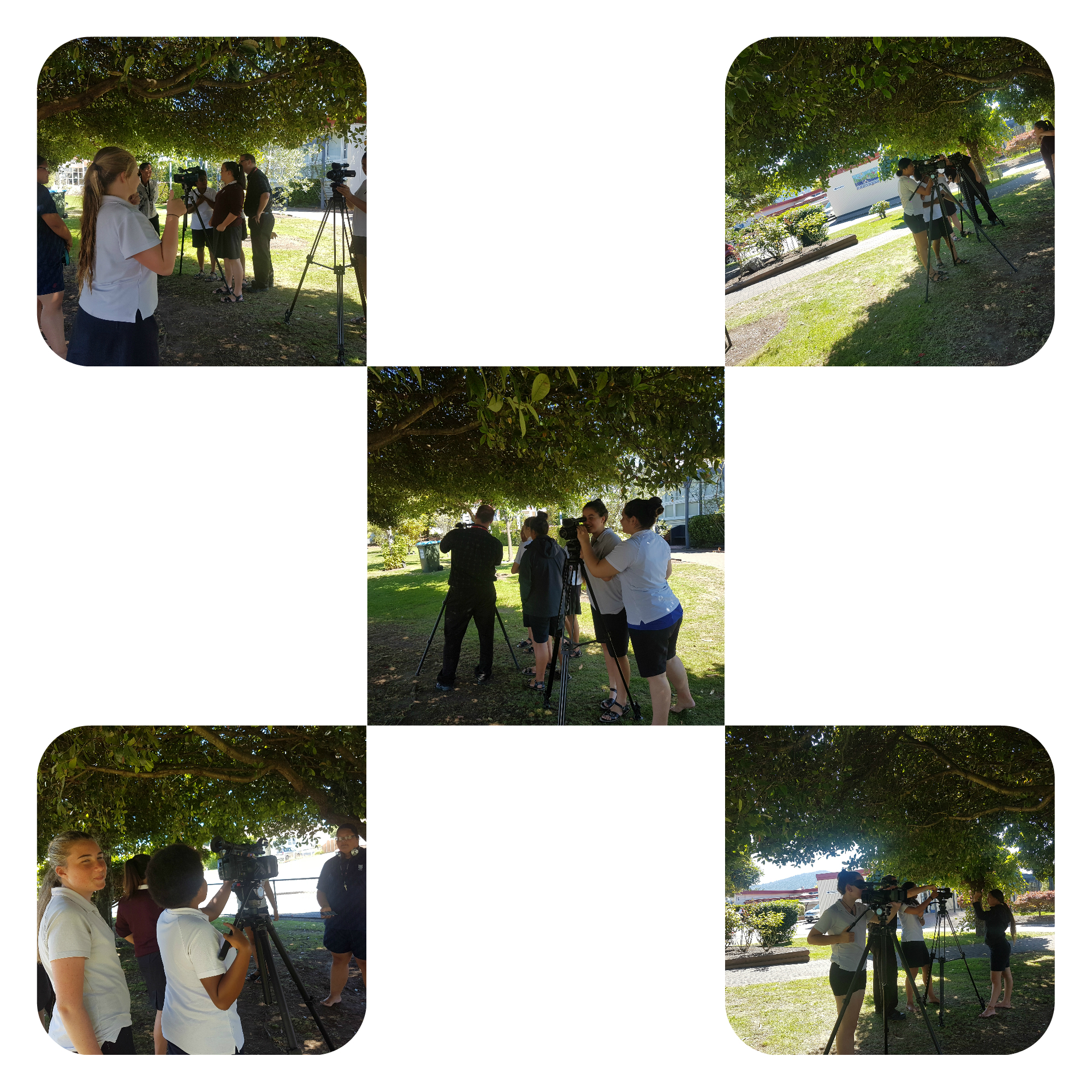
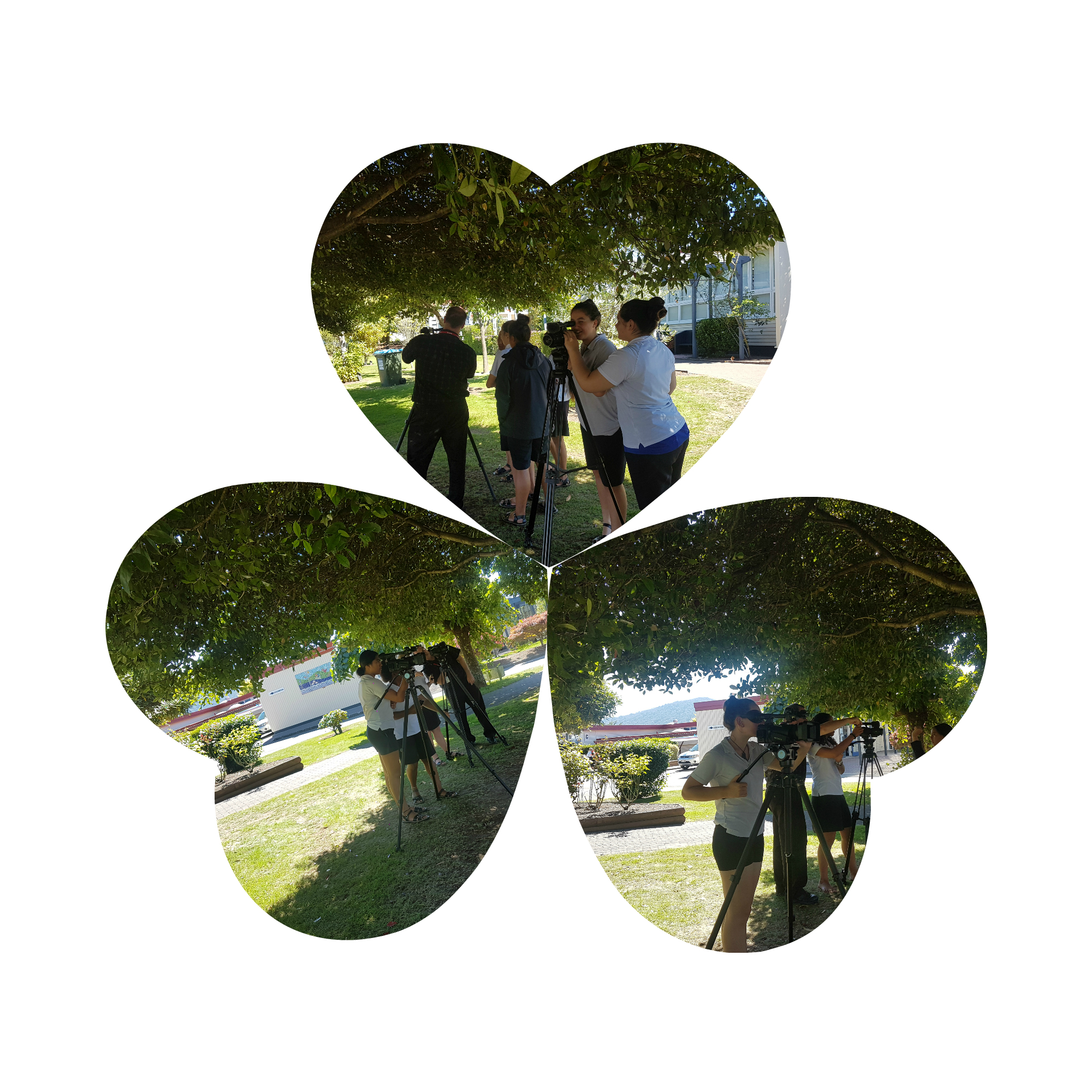

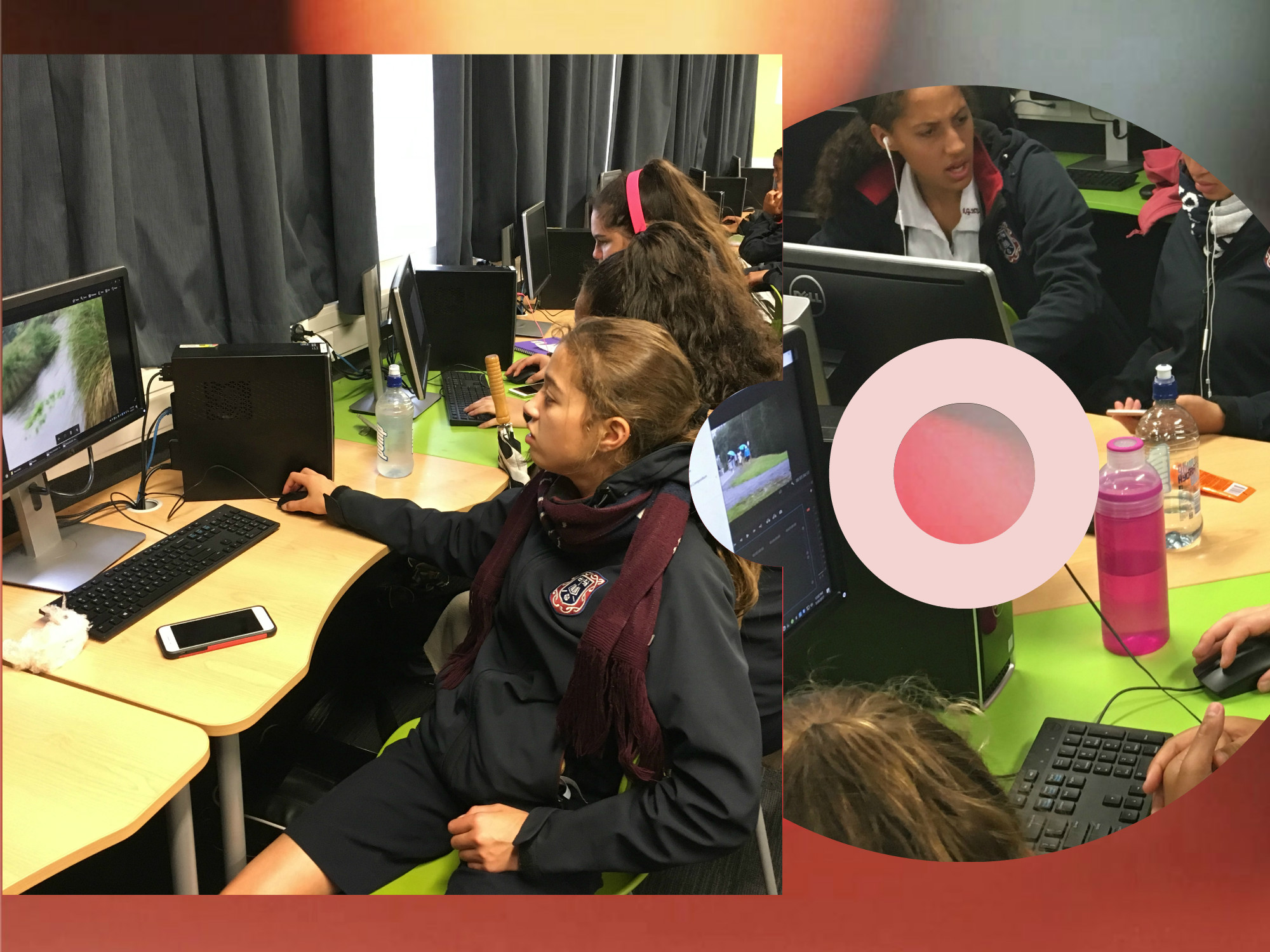
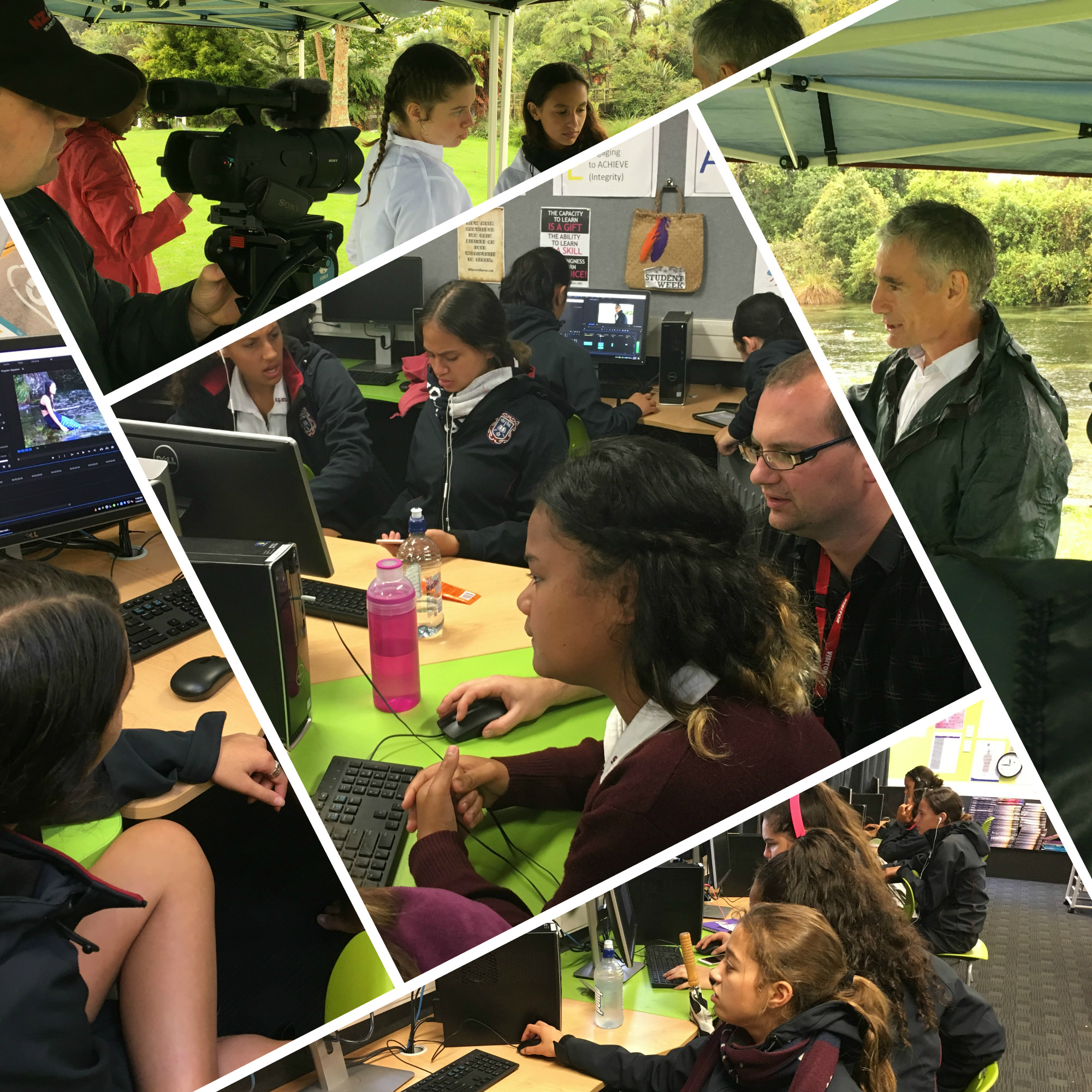
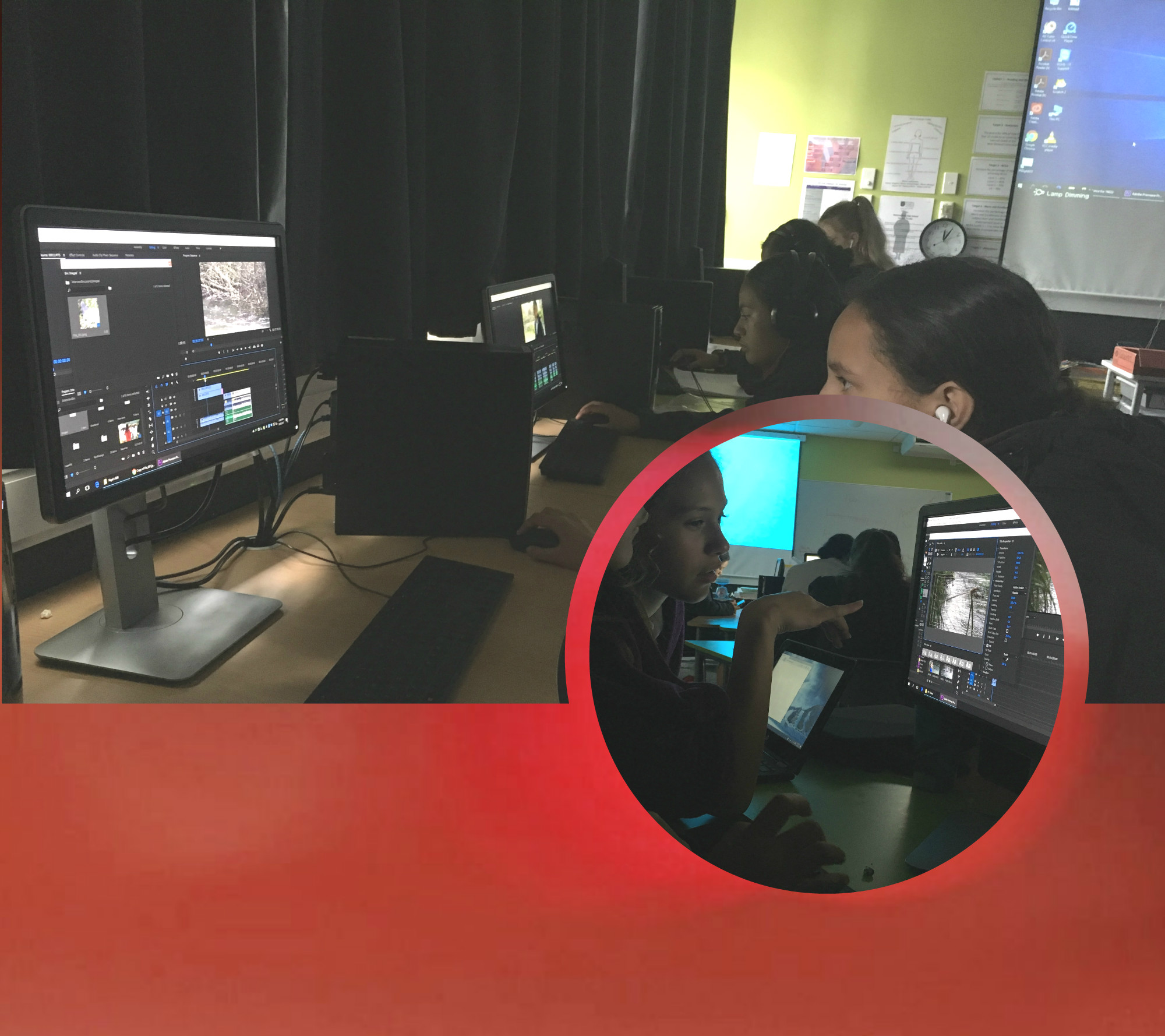
As the Year 10 Future Focussed Learning class completed their unit of work Te Rangihakahaka – My kainga, my castle; the aim is that students will become confident in their own identity, relate and connect to people, land and the environment and investigate this in a range of life contexts. Students developed an entirely successful Learning fair that encompassed:
- their investigating the history of Rotorua and how it was settled pre and post colonisation;
- a study on changes to Rotorua environment in the last 200 years;
- results of their water quality testing across their local region;
- identification of the impact that urbanisation have had on our waterways
- a range of film featuring their learning.
Over 300 students representing the the range of junior classes visited the Learning fair. All members of staff were specially taken through by the PTC ambassadors during the week long event. In addition, whanau, iwi and the Director of Learning of Ngā Pūmanawa e Waru (The eight beating hearts of Te Arawa) were significant guests during this outstanding school-wide event. The learning fair highlighted the enriched learning facilitated through the Indigenous Sparks™ initiative that assures our rangatahi are future-focused and environmentally conscientious for the 21st century and beyond.

